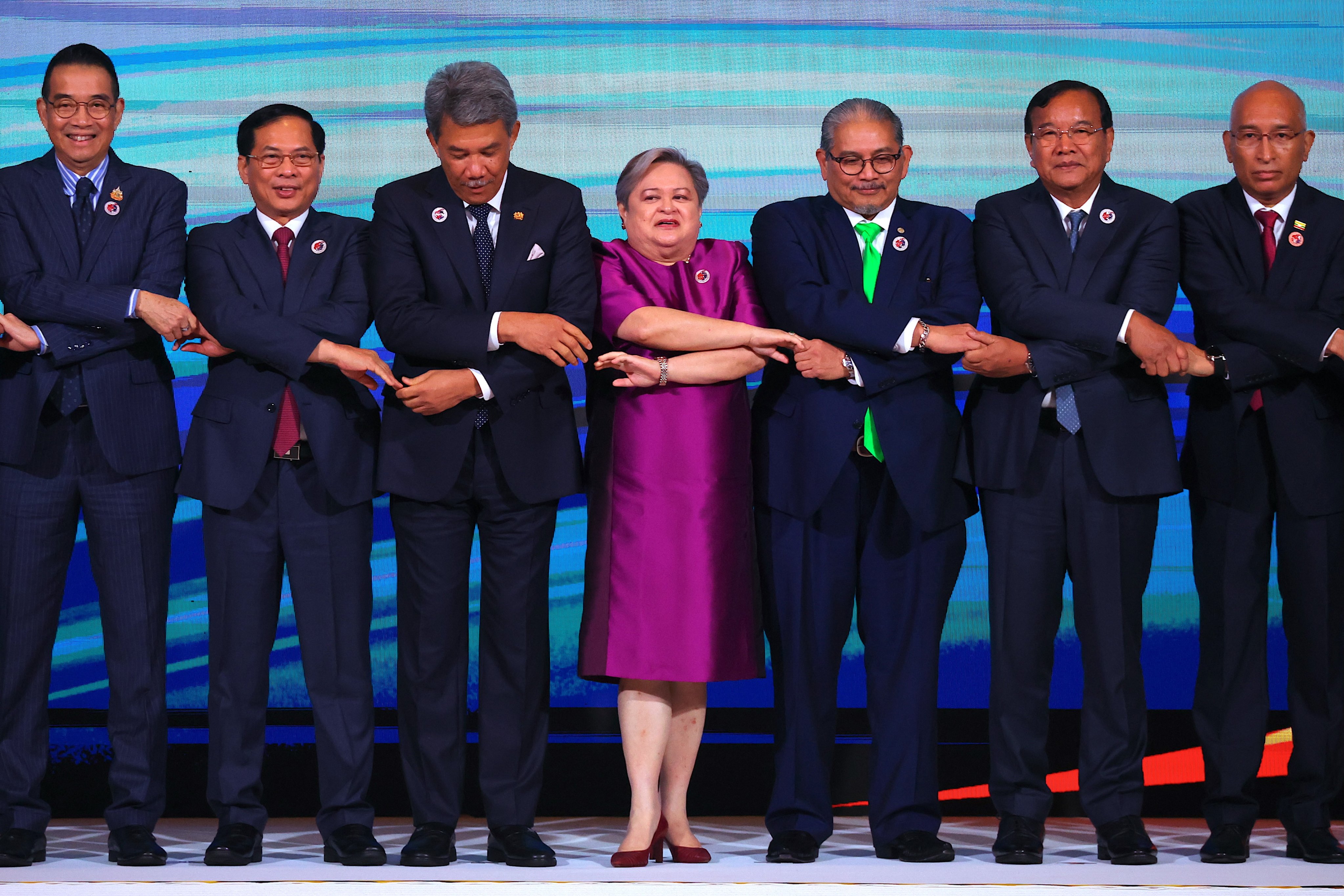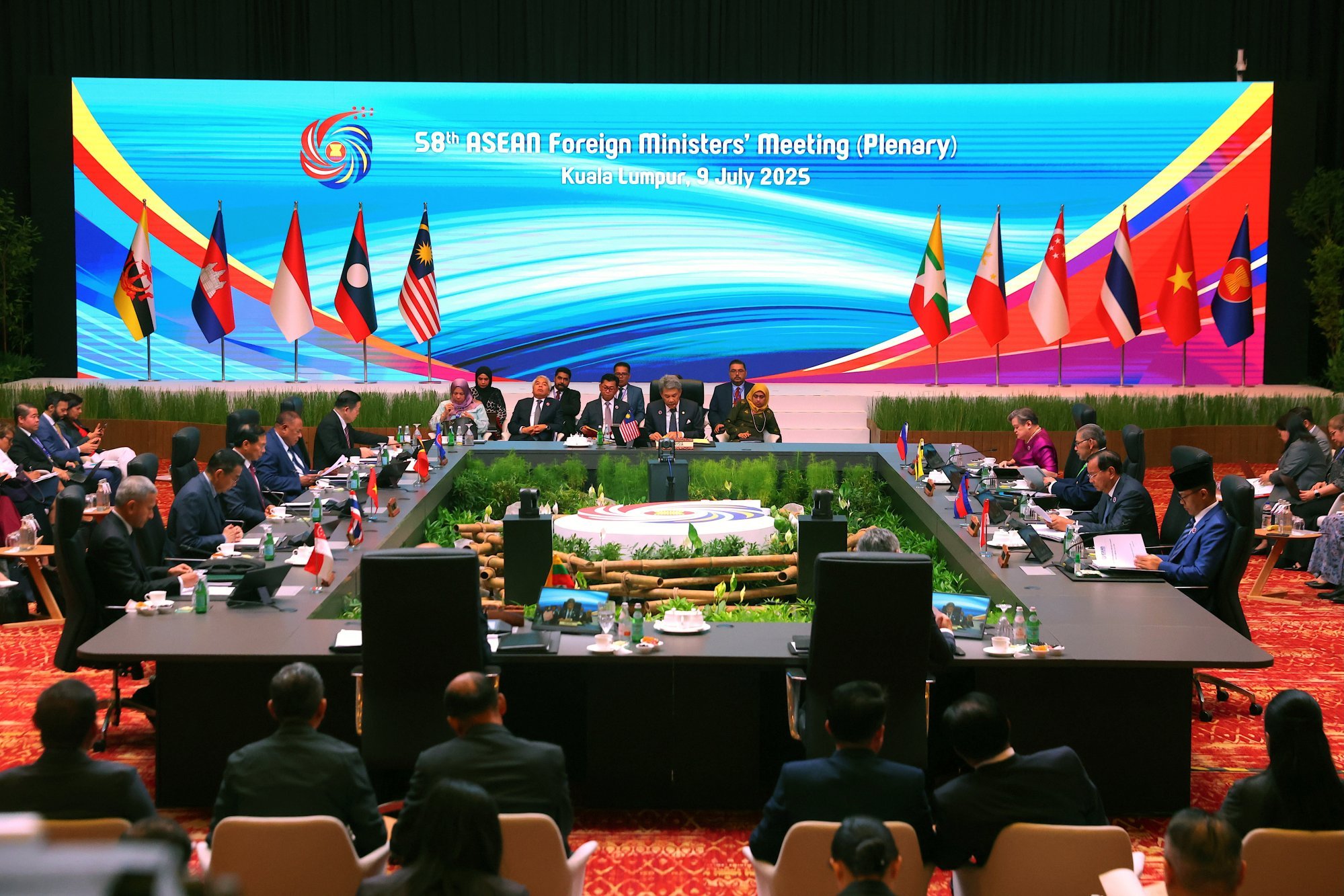Asean leaders renew call to revive stalled peace plan for Myanmar
Asean foreign ministers continue to urge implementation of the Five-Point Consensus despite the junta’s refusal to cooperate

Southeast Asian leaders have renewed calls to revive a stalled peace plan for Myanmar while urging calm in the South China Sea and backing an immediate ceasefire in Gaza – reflecting the Asean bloc’s cautious efforts to address some of the region’s most pressing security and humanitarian challenges.
Their positions were outlined in a sweeping 160-point joint communique issued at the conclusion of the Association of Southeast Asian Nations’ (Asean) Foreign Ministers’ Meeting in Kuala Lumpur, Malaysia, on Wednesday. The four-day gathering drew officials from across the region and major partners including the US, China, Russia, the UK, Canada, the EU, Australia, Japan, South Korea and India.
On Myanmar, the ministers reaffirmed their support for the Five-Point Consensus – a peace plan agreed in 2021 after the country’s military seized power in a coup – calling it the basis of Asean’s approach to resolving the country’s protracted crisis.
“We expressed our deep concern over the escalation of conflicts and the humanitarian situation in Myanmar, and encouraged progress on the implementation of the Asean Leaders’ Five-Point Consensus,” the statement said.

The ministers also condemned the continued targeting of civilians and public facilities and urged an end to indiscriminate attacks.
The Five-Point Consensus calls for an immediate end to violence, inclusive dialogue, the appointment of a special envoy, humanitarian aid, and talks with all stakeholders, including the junta and the ousted civilian leadership. But progress has stalled, with the Myanmar’s military refusing to cooperate. In response, Asean has barred the junta’s top generals from high-level meetings since 2022, allowing only non-political representatives to attend.
The bloc also addressed rising tensions in the South China Sea, calling for a peaceful resolution to overlapping maritime claims by China, the Philippines, Brunei, Malaysia and Vietnam through renewed negotiations on a long-delayed Code of Conduct to manage disputes and prevent conflict.
The communique specifically voiced concern over land reclamation activities in the disputed waterway and other actions that endanger lives, harm the marine environment, erode trust and threaten regional stability.
“We reaffirmed the need to enhance mutual trust and confidence, exercise self-restraint in the conduct of activities that would complicate or escalate disputes and affect peace and stability, and avoid actions that may further complicate the situation,” the statement said.
Those concerns were echoed separately by Philippine Defence Secretary Gilberto Teodoro at the Reuters Next Asia summit in Singapore on Wednesday.
“It is obvious that Asean countries are wary and worried about China’s activities. If not, there would be no call for a code of conduct in the South China Sea,” he said. “It doesn’t take a rocket scientist to be very concerned about what is happening.”
Manila and Beijing have been locked in a series of increasingly fraught encounters in the South China Sea in recent years, marked by aggressive manoeuvres, collisions and the use of water cannons – incidents that have raised the risk of escalation and drawn international concern.
Beyond regional flashpoints, Asean reaffirmed its support for Ukraine’s sovereignty, independence and territorial integrity, while also reiterating its long-standing position in favour of the Palestinian people’s “inalienable rights”, including self-determination and the establishment of a homeland.
Unhandled type: inline-plus-widget {“type”:”inline-plus-widget”}
On the wider Middle East conflict, the bloc urged all sides to accept ceasefire proposals and condemned attacks on civilians and public infrastructure.
“We called for an immediate and permanent ceasefire and the immediate and unconditional release of all hostages, especially women, children, the sick and the elderly,” the statement said, adding that the release of individuals held in arbitrary detention was also essential.
Malaysia, as this year’s rotating chair of Asean, will host the 47th Asean Summit in October. Prime Minister Anwar Ibrahim has invited US President Donald Trump and Russian leader Vladimir Putin to attend, alongside leaders of the Brics bloc including Brazil’s Luiz Inácio Lula da Silva and South Africa’s Cyril Ramaphosa.